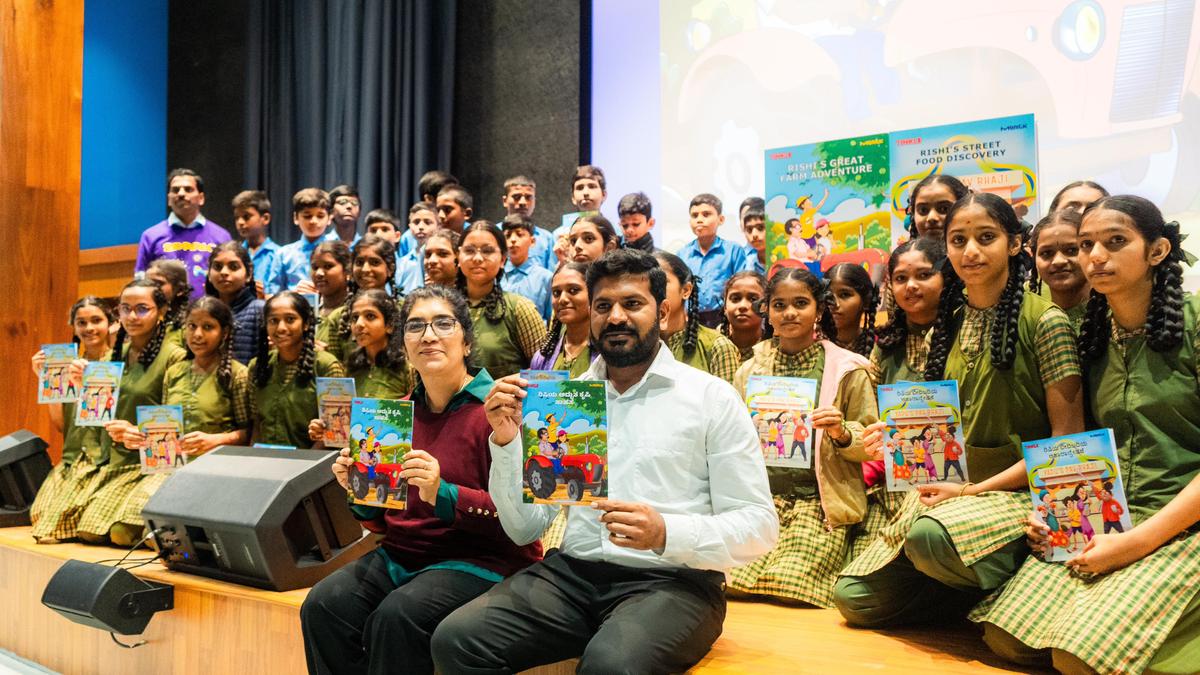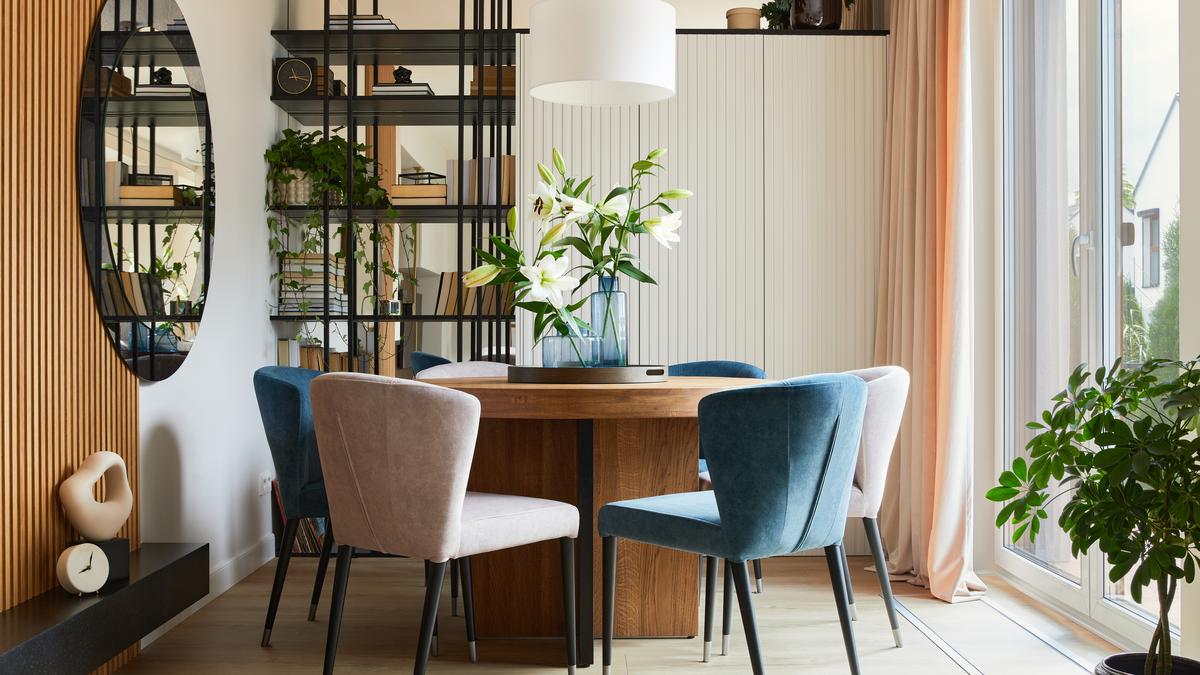Prem Balasubramanian and Carola Winnie of Chennai-based furniture brand Madras Makers are in Mysuru, furnishing a house with fine woodwork. In Ahmedabad, production is in full swing at Dhruvkant Amin’s 35,000 sq. ft. workshop for his brand, Tectona Grandis. Further north, in Manesar (New Gurugram City), Hitesh Sharma and Avantika Oli of Solid Bench are busy with their commission from Project 810 to make furniture with cirrus teak and live-edge slabs for the Delhi café Fio Pop. And en route to Puducherry, French designer Vincent Roy is hard at work prototyping an exclusive Wood’n Design collection scheduled to be out by the end of the year.
A deep passion for woodworking and a commitment to longevity distinguish these four studios. While their styles range from mid-century modern to Scandinavian and Japanese-influenced furniture, what unites them are their ergonomic designs with exquisite finish and how they prioritise functionality. But it has been an uphill journey. Balasubramanian laments the fragmented state of the industry, the difficulty of market penetration, and the poor understanding of actionable sustainability in building. “We can learn from the auto industry [where a product is assembled and delivered through a streamlined process],” he says. A point that Sharma of Solid Bench agrees with. “Solid wood furniture has had problems getting established because it lacks the capacity to scale up like plywood and particle board-based furniture,” he explains.
However, things are looking up now, especially with the interest in handwork and local craftsmanship post pandemic. Social media, word of mouth, appreciation from architects and interior designers, and new home builders with budgets from ₹15 lakh to ₹2 crore are helping these brands.
Local connect: Madras Makers
Bucket Lounge chair
| Photo Credit:
special arrangement
Balasubramanian, 38, remembers his parents taking him along to buy a sofa as a young boy, and his mother insisting, ‘We will never buy junk.’ An architect from London’s Bartlett School, he attributes his design sensibilities to this early exposure — making fine choices over hasty buys. He stumbled into furniture making over a decade ago. While on the hunt for wood for a home project, he chanced upon teak salvaged from old homes in North Madras and made his first pieces. Soon after, he founded Madras Makers in 2013 with Winnie, with a mission to prioritize enduring design over short-term consumption.
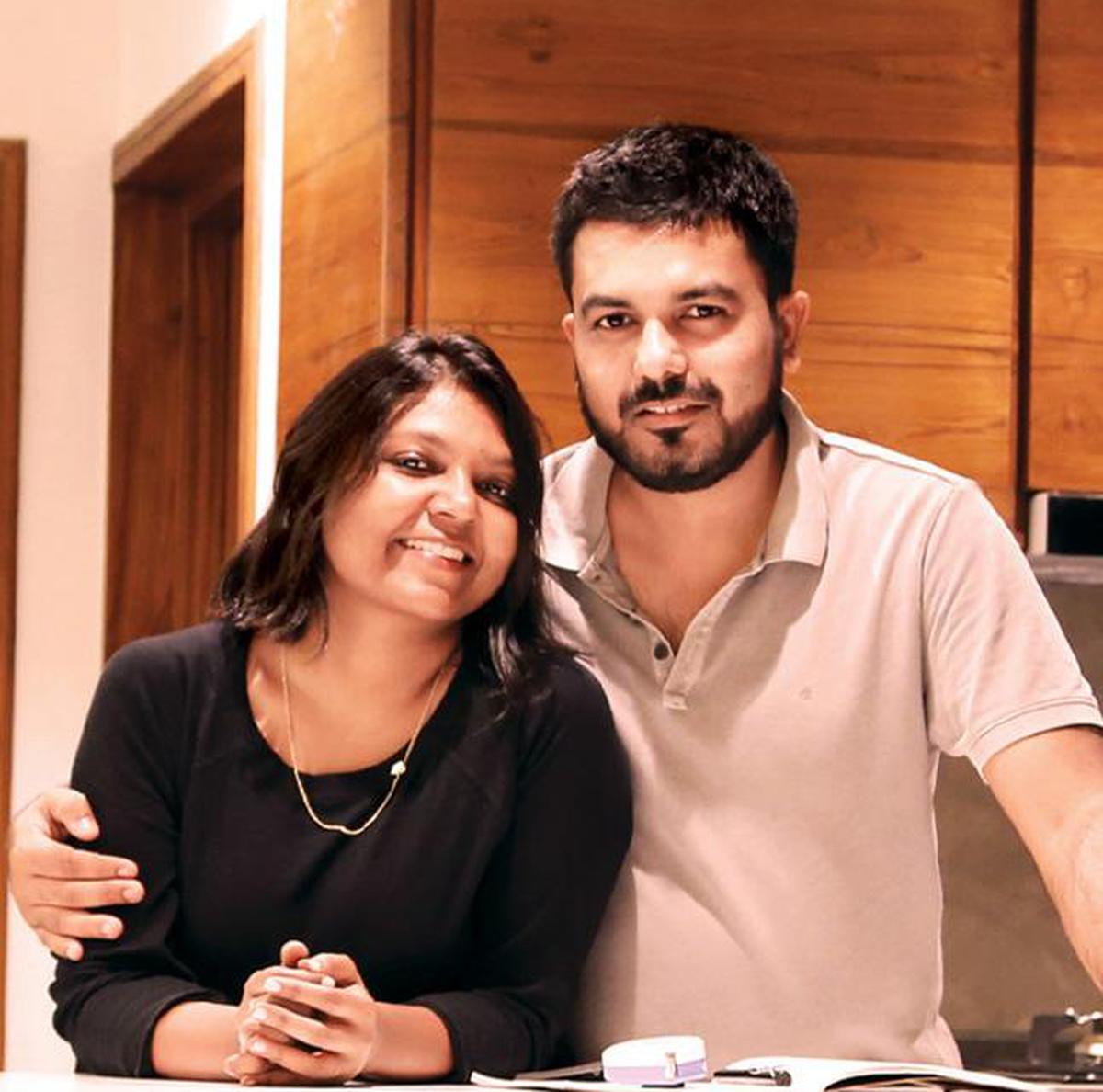
Prem Balasubramanian and Carola Winnie
| Photo Credit:
special arrangement
Their mid-century modern style resonates with Madras Makers’ clientele across major cities in the country. Balasubramanian advocates for an indigenous, bespoke approach, utilising natural materials such as hardwood and natural rubber foam. The studio’s craftsmanship caught the attention of many at the recent India Design ID in New Delhi, with visitors acknowledging the balance of aesthetics and ergonomics.
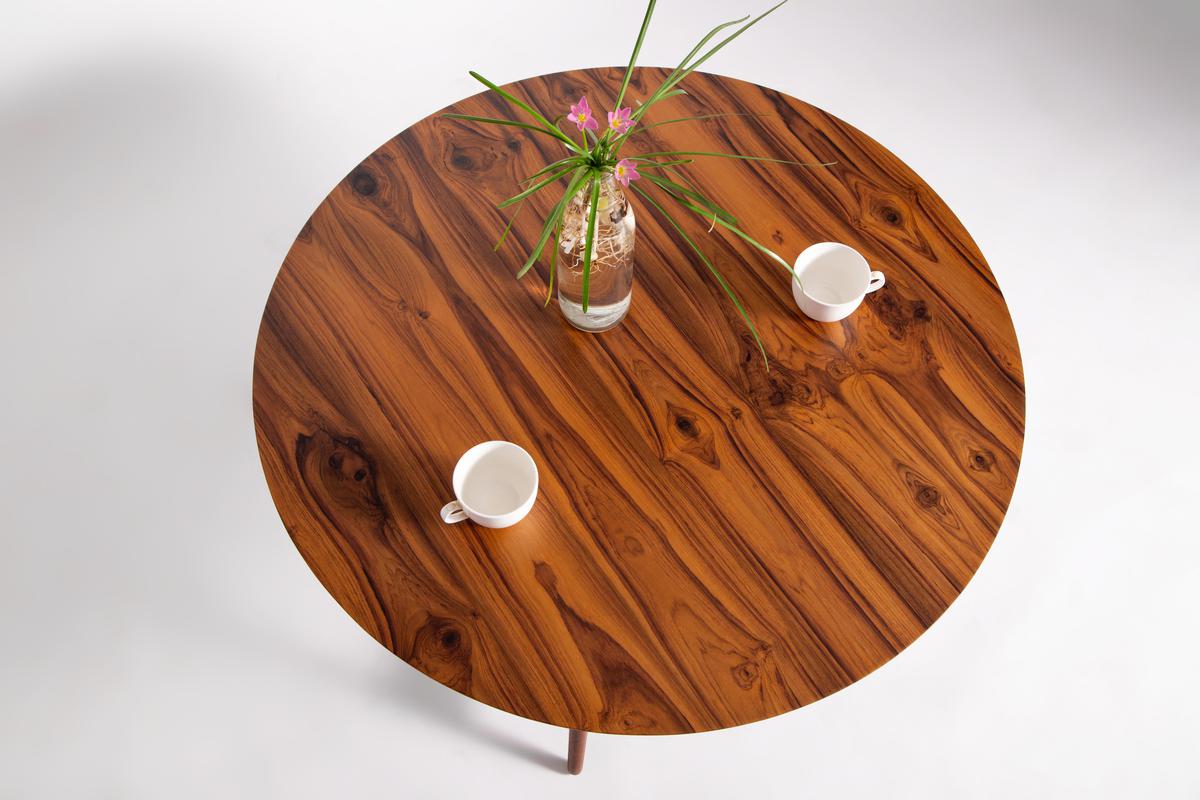
Pont centre table
| Photo Credit:
special arrangement
Balasubramanian attributes their success to a finely tuned sense of proportion and a dedication to transforming reclaimed materials into visually appealing and functional pieces. The studio’s investment in machinery streamlines production while maintaining the artisanal touch. With over 800 bespoke pieces in their collection and prices starting at ₹85,000 (for the Tag Chair), Madras Makers makes heirloom pieces that reflect their focus on quality.
From brandy to grain: Wood’n Design
Roy was just 21 when he came to India in 2008 and trained under master craftsman Patrick Lafourcade in Pondicherry, for a salary of ₹5,000. Later, he worked across Australia and Cambodia restoring antique furniture, before returning to set up Wood’n Design in 2012. Aspiring for the finest comes naturally to the Frenchman whose family is fifth-generation cognac makers, now supplying to Hennessy.
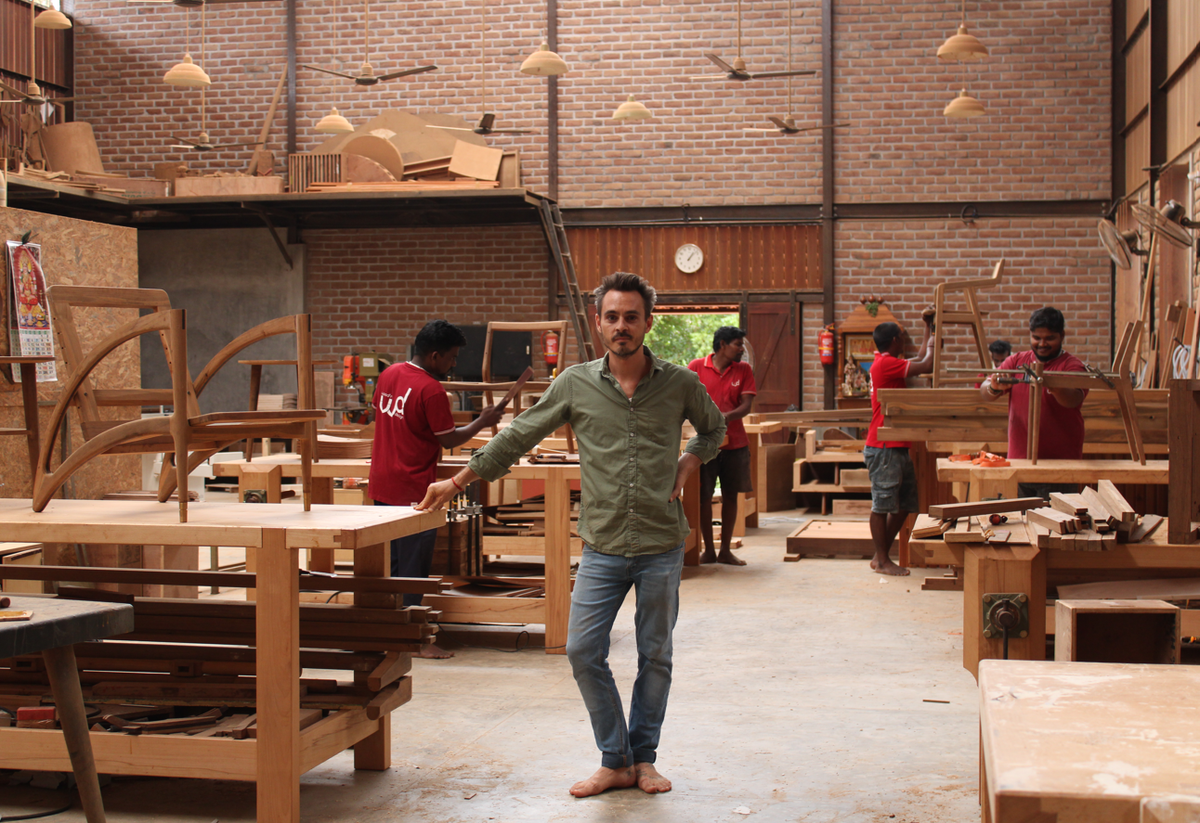
Vincent Roy
| Photo Credit:
special arrangement
Setting up an artisanal furniture shop is a time-consuming process, says Roy, now 37, who trained 70% of his carpenters. “It takes four years of training to make a master craftsman.” His workshop’s location between Auroville in Tamil Nadu and Puducherry is critical to Roy, who cherishes the area’s eclectic culture and creative synergy. It lets him experiment with local artisans and artists, he says, adding, “I just have to jump on my bike to be able to get anything done.”
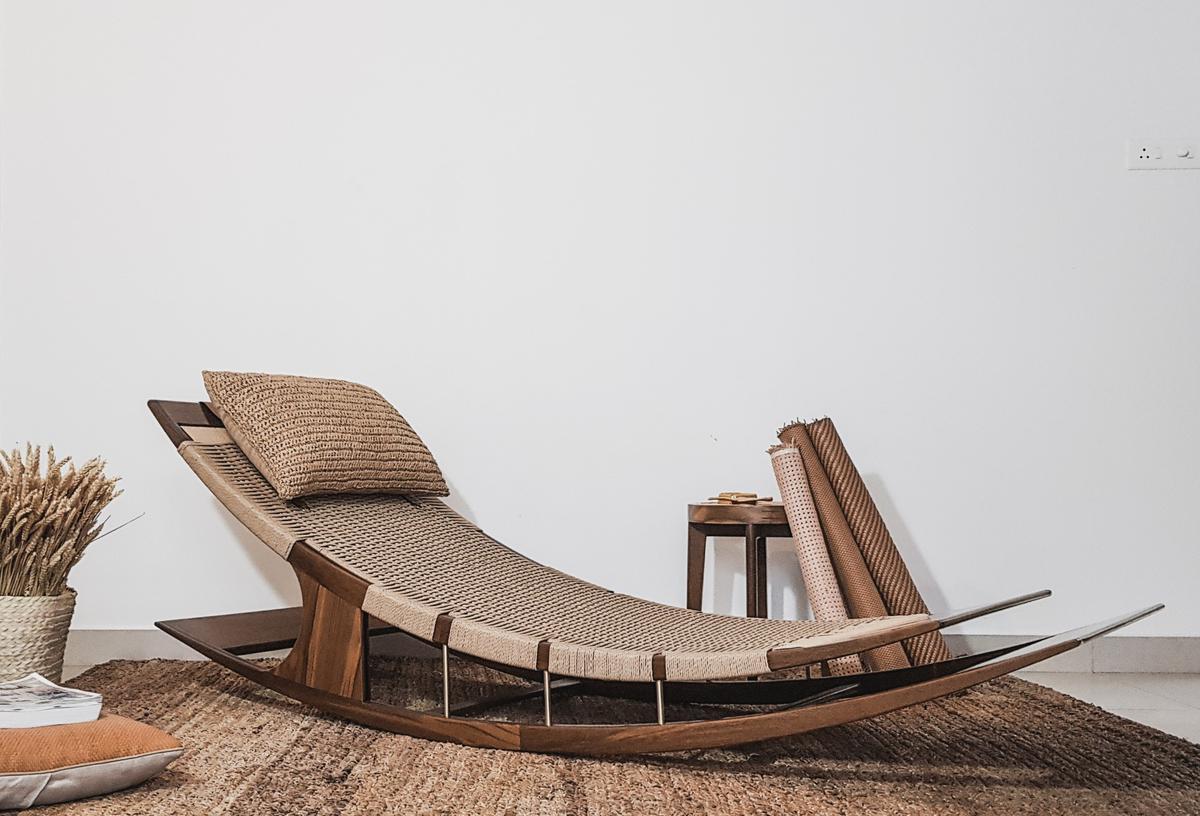
Chaise lounger chair
| Photo Credit:
special arrangement
The works of Scandinavian designer Hans Wegner, Danish creator Kofod Larsen as well as French designers Charlotte Perriand, Jean Royère and Jean Prouvé have influenced Roy’s design sensibilities. “I like the classic with a modern twist,” he says. His team of 40 follows precision design to create works rooted in the Indian context but with a European touch. Roy is proud of their solid wood lamination technique and unique joinery with brass and wood details — a technique rarely seen today.
At the heart of teak: Tectona Grandis
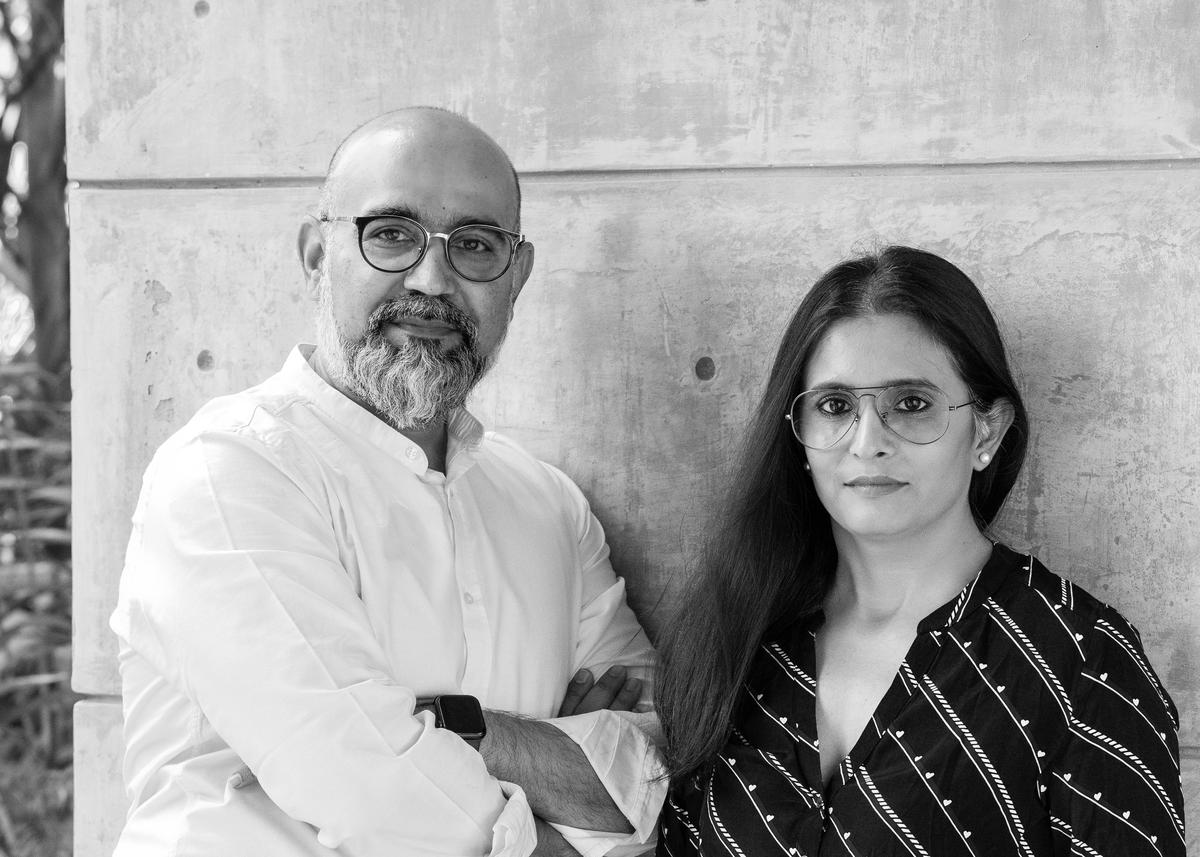
Dhruvkant Amin and Jalpa Amin
| Photo Credit:
special arrangement
Teak, with its greater oil content and fine grain, is a much-loved wood. It is no coincidence that Amin, 46, gave his studio its botanical name, Tectona Grandis. The designer credits his mentor G. Upadhyaya from his NID days in the early noughts, for his fine understanding of furniture. With his well-established interior design practice, in 2013, Amin got his first large commission — to do the institutional furniture for IIT, Gandhinagar. This spurred his India-centric vision: why not manufacture locally rather than buy from China and Italy? In 2016, he formalised his brand and its first range of reclaimed wood furniture with open grain finish was introduced formally at RAW, a recognised local exhibition platform.
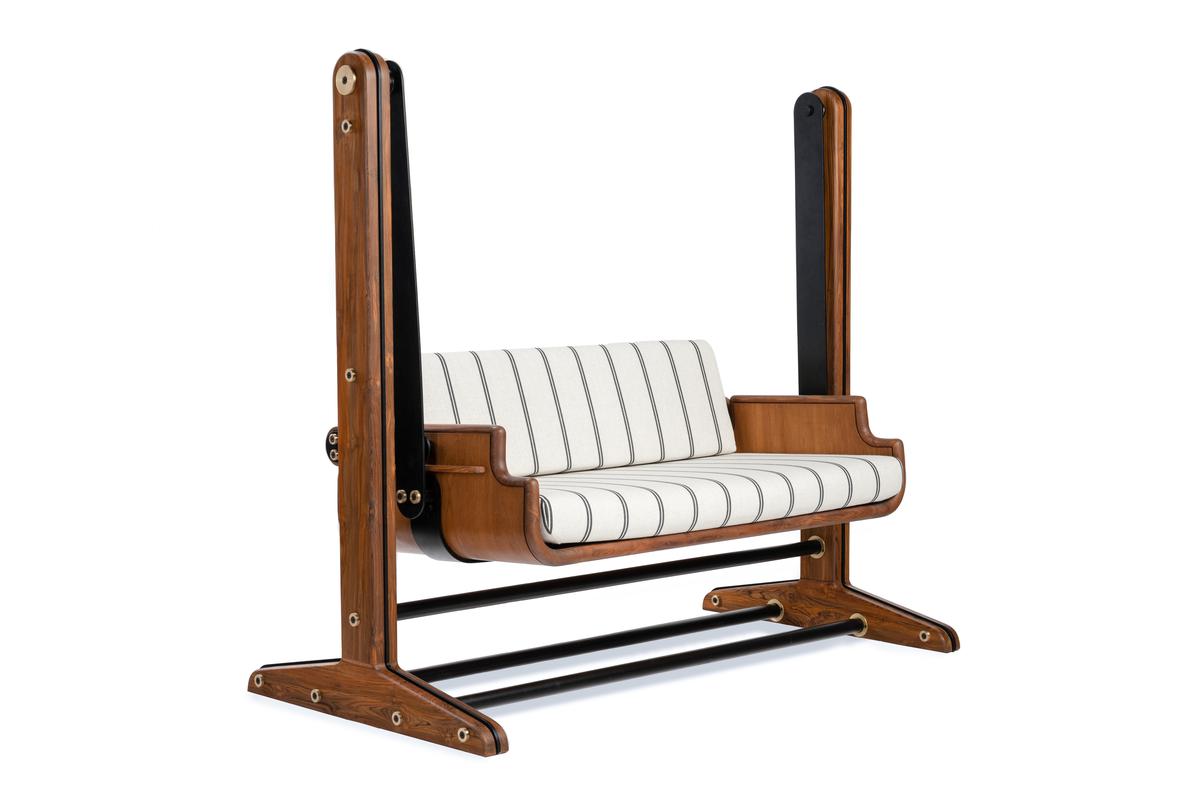
Siesta swing
| Photo Credit:
special arrangement
Amin was clear that he wanted to produce long-lasting pieces with timeless aesthetics that simultaneously evolve to match market needs. They have over 800 pieces that range from ₹15,000 to ₹3.5 lakh. Tectona Grandis has quietly made inroads with pieces such as the Ripple Coffee Table, with carved wood details, and the revolving Spin Chair.
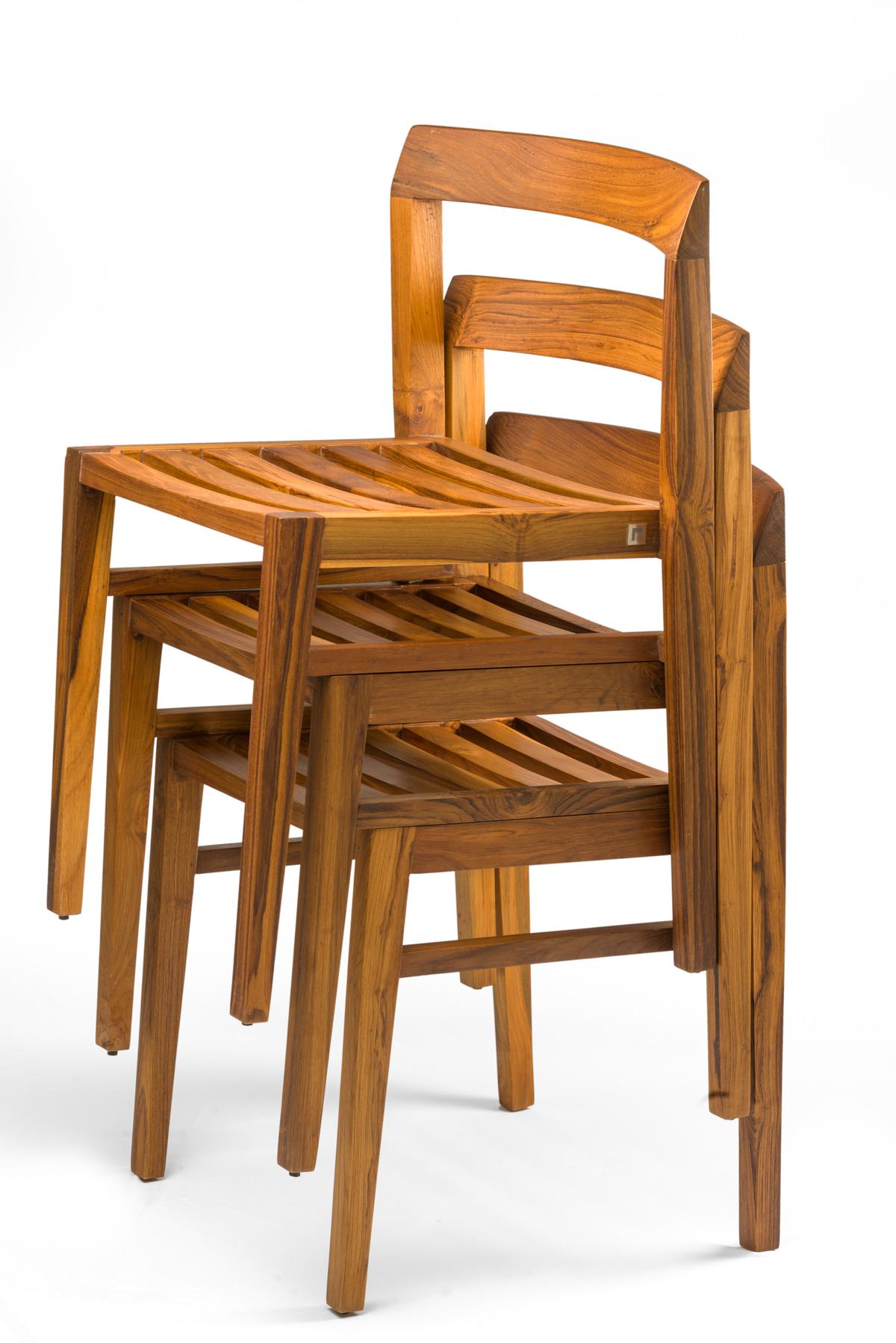
Karma chair
| Photo Credit:
special arrangement
Karma Chair, an early design created for Navjivan Publishing House, is a stackable, minimalistic design that’s also price-friendly. “We work with the foremost architects across India, though our major business is in Gujarat,” says wife and partner Jalpa, while Amin adds, “Furniture designers are only now getting their acknowledgement because of rapid urbanisation, better economic policies, a progressive government and international exposure.”
Live advantage: Solid Bench
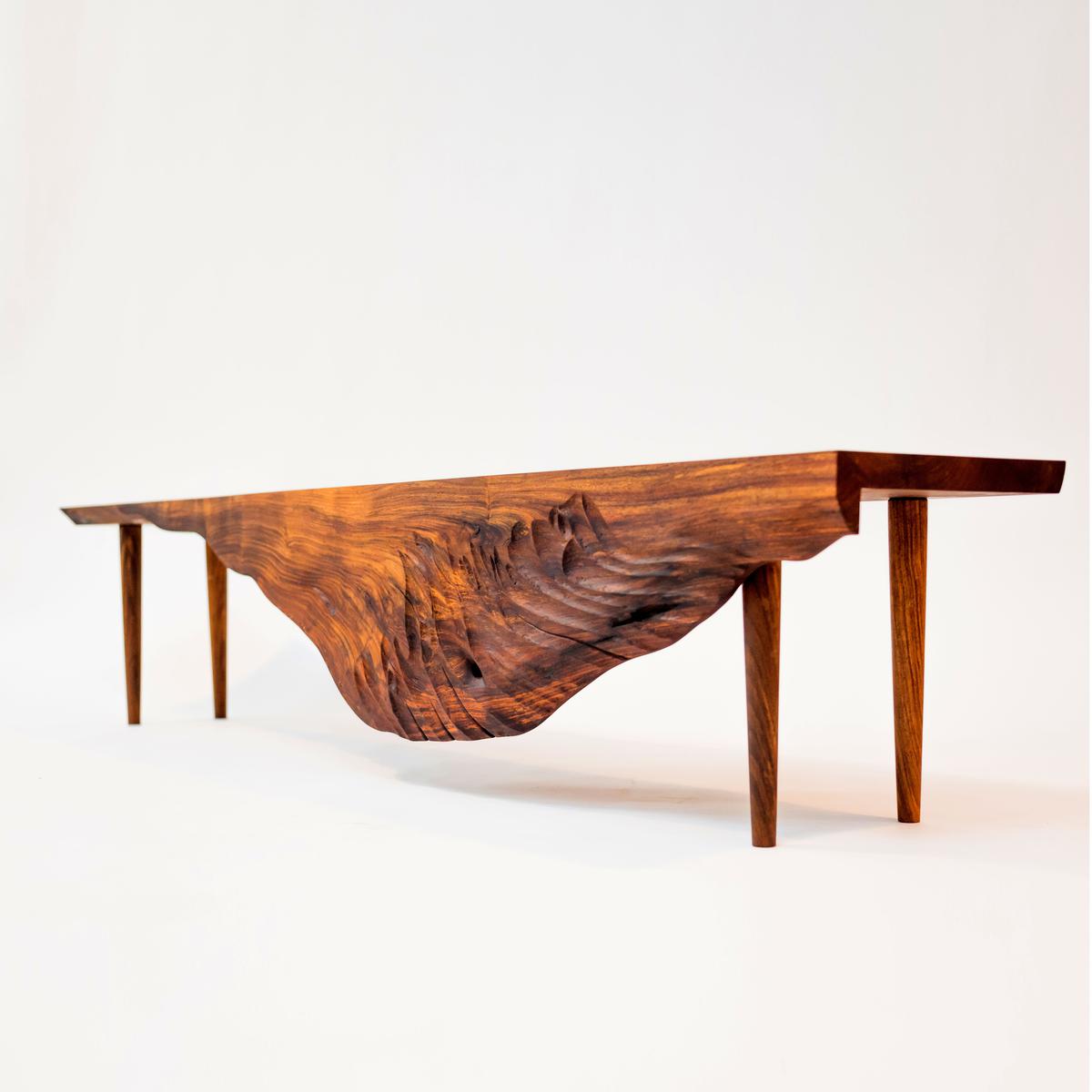
Swan bench
| Photo Credit:
special arrangement
For Sharma, 43, and Oli, 41, it all starts with choosing the right tree. The husband and wife team, who founded Solid Bench along with Anant Khirbat, come from engineering and management backgrounds. The trio buys wood at government organised auctions, where entire trees are sold at their end-of-life stage. They pick CPT (central province teak, from Madhya Pradesh), cirrus, Uttarakhand teak and Indian cedar, and imported white oak and white ash from Gujarat. “We follow a meticulous seasoning process using a solar chamber, followed by a gas chamber or electric chamber,” says Oli.
Hitesh and Avantika
| Photo Credit:
special arrangement
Oli’s and Sharma’s furniture-making venture began with a quest to find quality pieces in the market. From a hobbyist start-up, Solid Bench got its breakthrough at Frankfurt’s Ambiente trade fair for a bench design in 2019 — which was well received in India. Committed to bringing out the beauty of grain, they combine American craftsmanship with Japanese aesthetics, embracing the wabi-sabi way of finding beauty in imperfections. They also prefer natural oils such as linseed over varnish for their pieces, which start at ₹19,000.
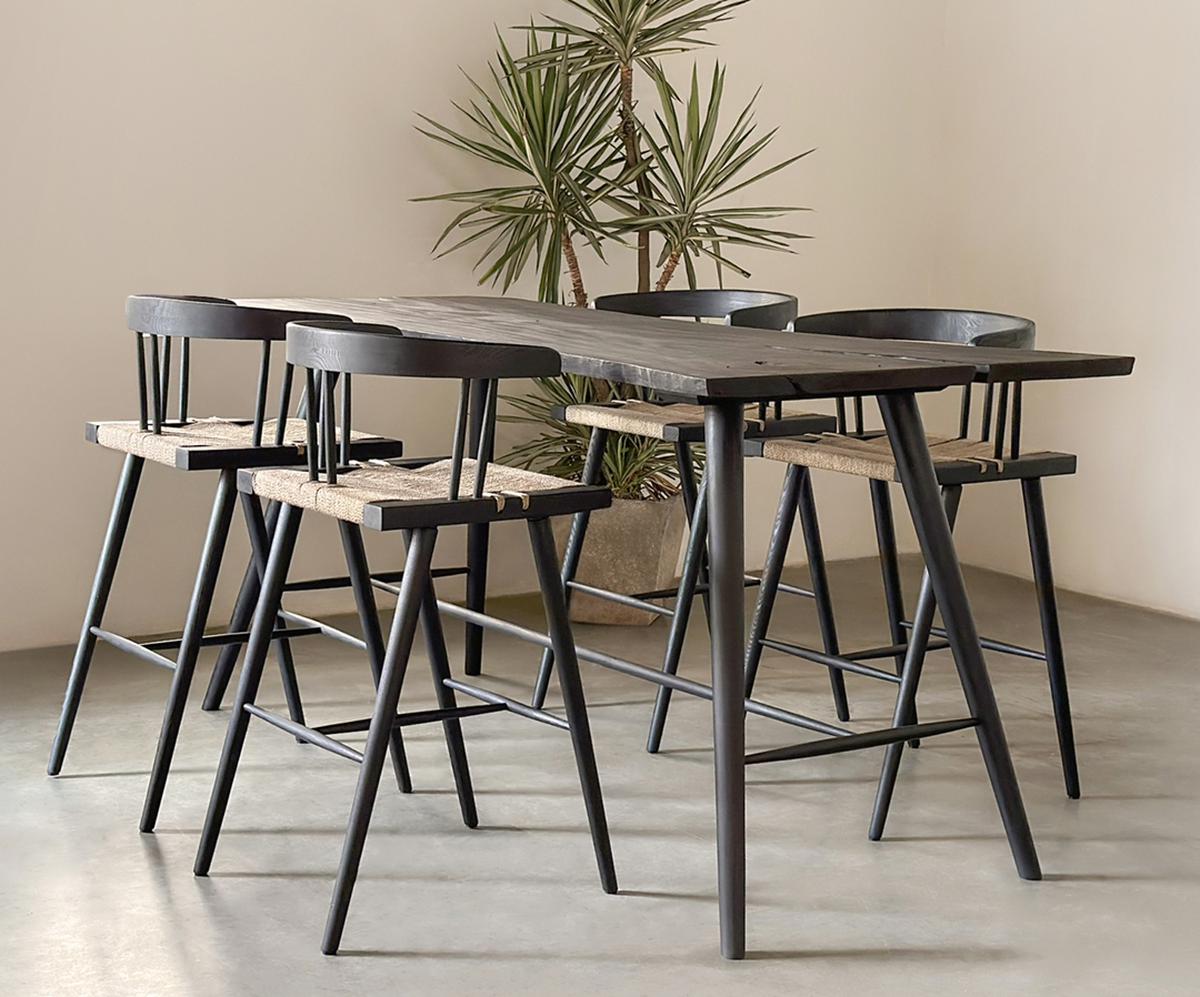
Bengal rope high chair
| Photo Credit:
special arrangement
The team of 18 is inspired by the soul of the tree, giving it a second life. Live edge furniture where the natural line of the tree trunk is kept intact, continues to be a core proposition for their tables and benches.


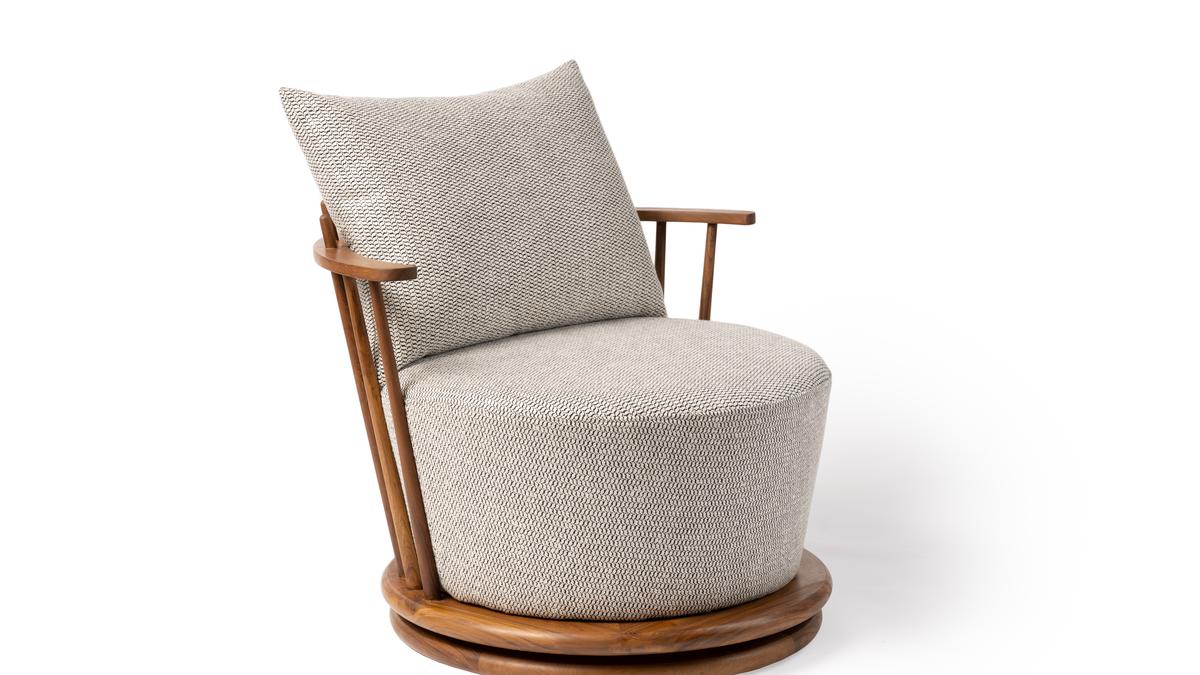
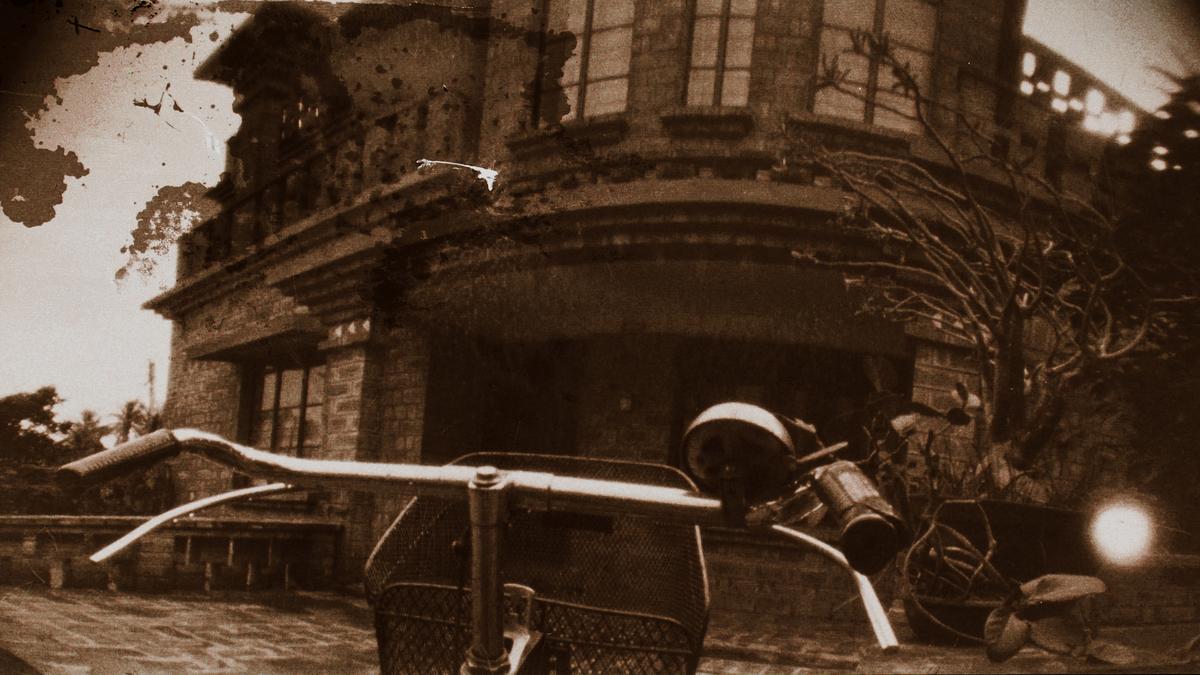.jpg)
